I went to an IOHK blockchain conference in June, and I met this bright young guy from Shanghai, Lei Hao. Turns out my SF novels like Postsingular and the Ware Tetralogy are quite popular among programmers and techies in China now. Lei Hao suggested that he might help me get some of my novels out in legit, non-pirated editions. And in the mean time he’s started a company called Access Digital.
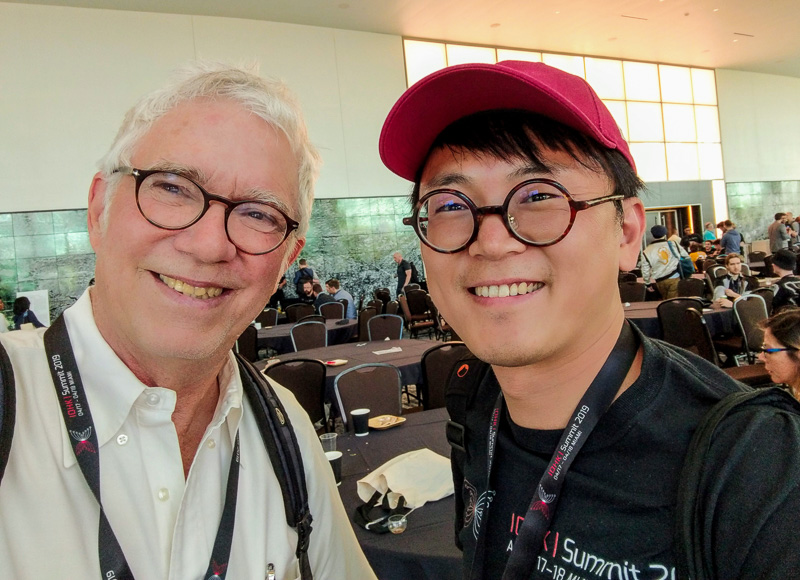
So, long story short, thanks to Lei Hao, my agent made a deal with New Star Press in China to publish a translation of Million Mile Road Trip. Here’s the book’s home page. And Lei Hao has is currenlty finishing the translation. And if all goes well, he’ll translate some more of my books for New Star as well.
While Lei Hao was turning my book into Chinese, Lei Hao sent me a series of questions—and I kind of had to laugh about how hard it would be to translate some of the things I wrote. But I wrote up hints, giving it my best shot, and it was kind of weird and fun. So just for the hell of it, I’m reprinting Lei Hao’s queries and my responses, along with the passages under discussion…the phrases under discussion are shown in bold face. And the page references for the quotes are to the Night Shade print first edition, paperback or hardback.
And, as usual, I threw in a buttload of images. A lot of them actually relate to the book. Here’s a universal ebook buy link for it. Print editions: Amazon, and Barnes & Noble.
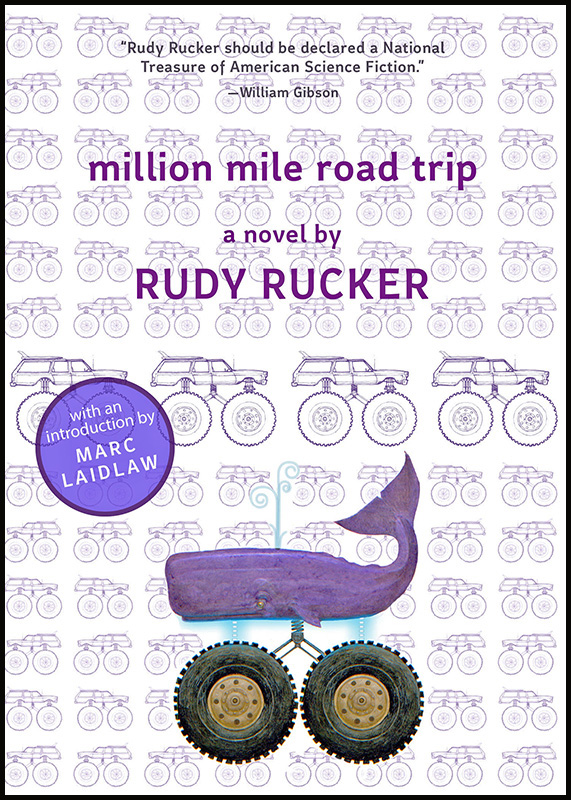
{{=========1: First Kiss
Page 3: Villy’s looking at her. Zoe feels she’s too short and her breasts are nothing much. As for her butt, well, it’s wider and rounder than it was when she was eleven, and boys have been known to stare after her in the hallway, brain-dead sexists that they are. But when Villy looks at her, she’s glad. And she likes looking at him. He has these flowing surfer muscles. He’s never out of balance, always in the now. So unselfconscious, so male.
Lei Hao: I wonder if ‘in the now’ means he’s always very calm and can control the situation?
Rudy: “In the now” is to be focused on the present situation, not distracted by emotions, paying attention to the immediate world, not thinking about past regrets or future feats. It’s a popular phrase in the US.
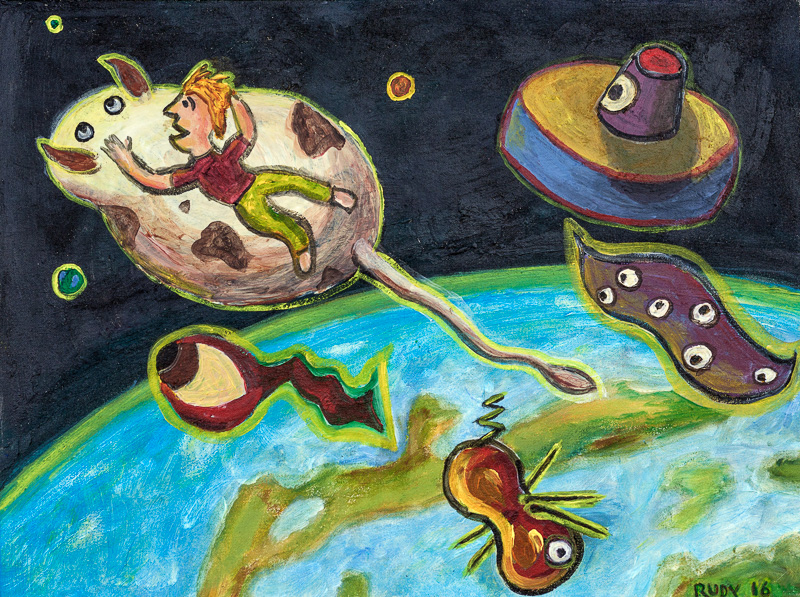
Page 5: “Mom nagged me for months to write my Berkeley application. The personal statement part. On the last possible day, I wrote that American life is a blockbuster movie with hiccup anthems, but I—I want a life that’s a flip-card cartoon with sqwonky horns.”
Lei Hao: I don’t really know what ‘sqwonky’ means.
Rudy: Sqwonky is a made-up word. It stands for a sound. Like “raucously honking”. I think some Jazz musician might have used that word.
{{=========2: Magic Ladder
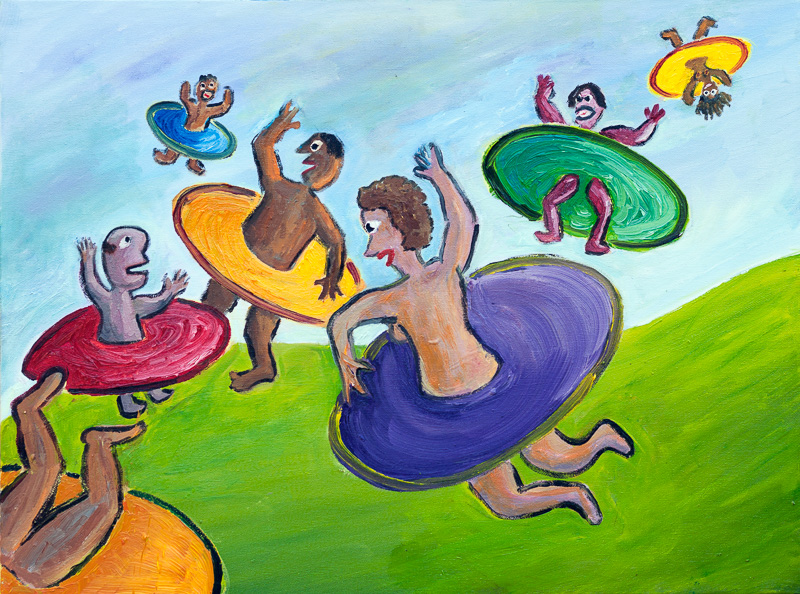
Page 16: And then Zoe’s father leaves Mom for the skungy, plastic Sunny Weaver. Wheenk, wheenk, wheenk.
Lei Hao: I wonder if ‘skungy’ means dirty and unpleasant?
Rudy: Yes there are several slang words like this that are used in California. Skeevy, scuzzy, skungy. They all mean dirty, smelly, dishonest, unpleasant.
Lei Hao: And what about ‘ Wheenk’?
Rudy: I use “wheenk” in several ways in my books. Here I am using it to stand for a person feeling sorry for themself. Like “Sob, sob, sob.” But wheenk is the sound of piglet being slaughtered perhaps, or of someone complaining very hard. Or it can just mean having some emotional feeling. When I write a story without enough inner life in my characters, and they are too stiff and plastic, I might say the story needs more wheenk.
{{=========3: Villy’s Family
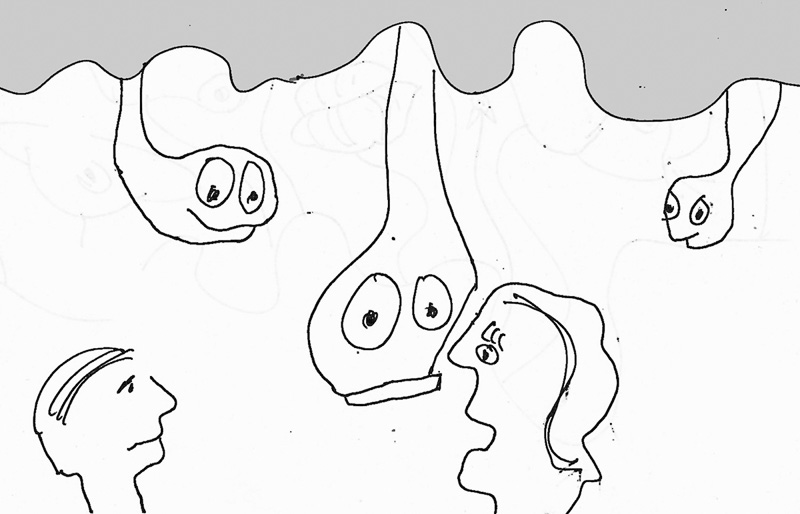
Page 33: “Yubba woot!” yells Scud.
Lei Hao: Okay, what’s ‘ Yubba woot’?
Rudy: That’s a silly nonsense phrase that a kid like Scud might holler. I use the word yubba sometimes, its a little like hubba hubba, a 1940s phrase for being excited, perhaps related to the Brazilian oba oba. Woot is a word that programmer and gamer sometimes use in their comment threads to mean something like woo-hoo or hooray or that’s great. They like to write it with zeroes instead of O’s, like w00t.
{{=========4: Zoe’s Mom
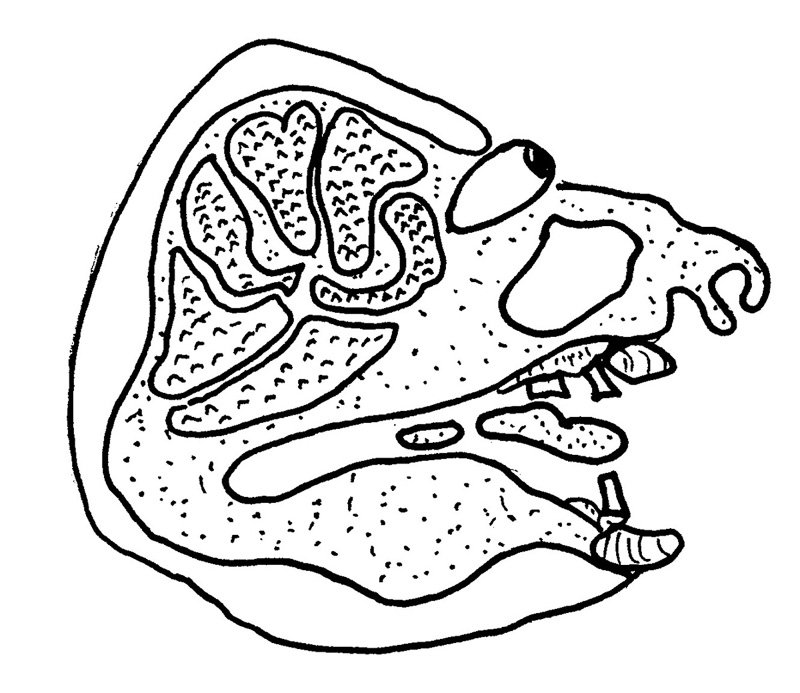
Page 36: Worse than this, what if Zoe is only imagining that an alien named Yampa is under her bed and saying that she knows Maisie? Creepsville central.
Lei Hao: What’s the meaning of ‘ Creepsville’?
Rudy: It was a 50s and 60s Beat or hipster usage to say something or someone was —ville. Meaning an imaginary place that has lots of —. Like Endsville or Nowheresville or Splitsville (getting divorced). Creep is creepy as in unpleasant and possibly a sexual molester. Creepsville is a situation where something is creepy or disturbing. And adding “central” intensifies it. Not only are you in Creepsville, you’re in the central core of Creepsville.
Page 37: “Pinchley and I came for kicks,” says Yampa. “A million mile road trip. And, more, we’re on a mighty mission—thanks to the goading of Goob-goob and the machinations of Maisie.”
Lei Hao: Who is ‘Goob-goob’?
Rudy: Goob-goob is a godlike alien they eventually encounter. I used this name as a kind of joke in that a goob is stupid person, a hick, a newbie (noob), an idiot. So to call the god Goob-goob is a little bit to suggest that it’s dumb to believe in this god. But Goob-goob is in fact impressive.
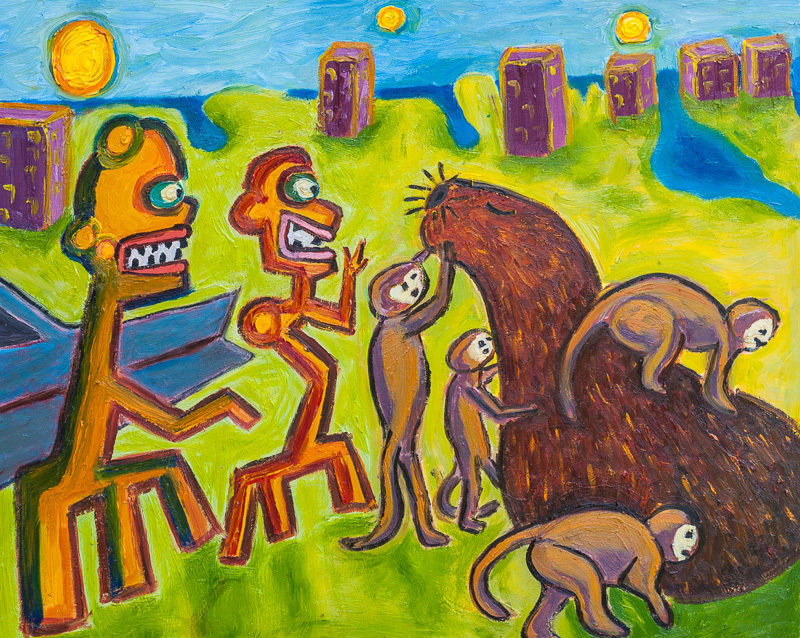
Page 38: “Your sister shuttles,” says Yampa. “She’s…similar to the saucers? She presented you the saucer pearl. She taught you the toot for the tunnel. She put Pinchley and me in place at your tunnel’s termination. Why? Goob-goob wants to wrangle two or three humans like you—to win the wand for warring with Groon.”
Lei Hao: Who is ‘Groon’?
Rudy: Groon is main villain of the book. The name has a sound like groan. Unpleasant. Groon is a giant bagpipe.
Page 38: Other odd aliens,” says Yampa. “Not all of them friendly. We’ll see Flatsies, giant ants, music cubes, Thudds, bubble-men, Freeths
Lei Hao: What’s the meaning of “Thudds” And “Freeths”?
Rudy: Thudd is like thud, a heavy thump, and they are dinosaurs. Freeths are, well, I hardly remember, I think that annoying blob woman who comes with them is a Freeth.
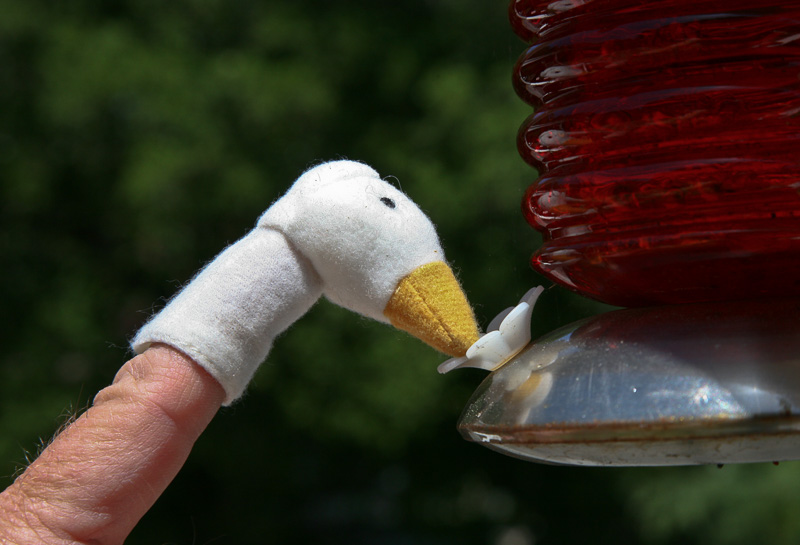
Page 44: “They [the flying saucers] are not vehicles,” says Yampa. “They’re muscle and meat, with bumbling brains. The problematic ones are parasites who siphon people’s smeel.”
Lei Hao: What’s ‘smeel’?
Rudy: Smeel is a word I use in a lot of my books. It stands for something like aether or ectoplasm, an insubstantial psychic substance. As a private joke it is very close to the word smell. In this book, smeel is a psychic energy that is in people, almost like their soul, and Groon’s saucers eat smeel.
Lei Hao: Your description of smeel as a spiritual substance is very close to the theory of vitality in Chinese Taoist philosophy. Taoist thought holds that 元气(vitality), pronounced as yuan qi is the primary material that constitutes life and nature. It is a kind of spiritual energy in the human body. Given the similarity between these term, I will adopt yuan qi for the translation of ‘smeel’.
{{=========6: Unny Tunnel
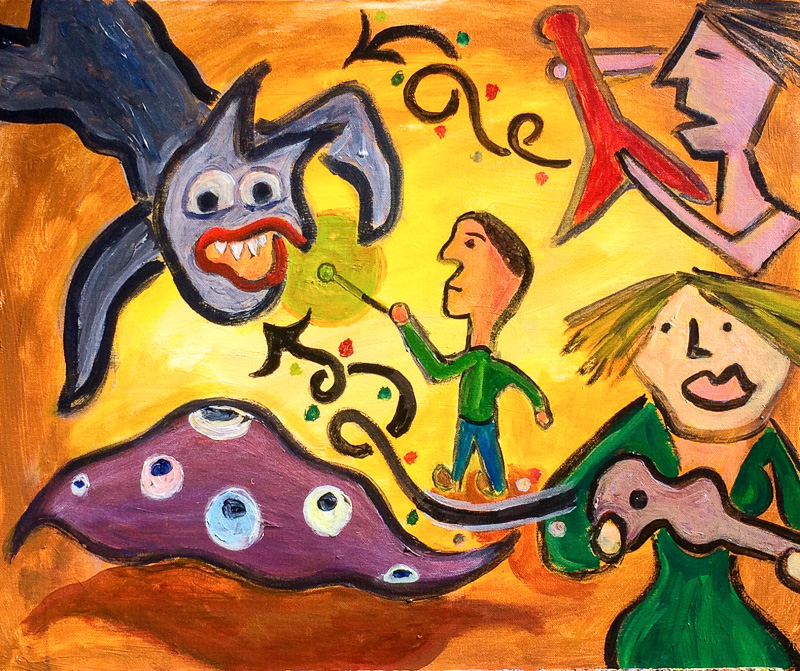
Page 58: “Corkscrew caves and zonked ziggurats,” adds Yampa.
Lei Hao: What are ‘Corkscrew caves and zonked ziggurats’?
Rudy: It’s about alliteration, starting words with the same letter. Corkscrew is twisty, like a helix, so a corkscrew cave is an intricately twisted cave. Zonked it to be stoned or high or drunk. A ziggurat is a Mexican Aztec pyramid with steps on the side instead an inclined planes. I think they have ziggurats in Asia as well.
Page 62: Like, Zoe is looking out her window—and she sees a purple station wagon that’s keeping pace with them, and the driver is Villy, precisely and to a T.
Lei Hao: And what is ‘to a T’?
Rudy: An idiom, common phrase. “suits me to a T” means “It’s exactly what I like.” Here it’s used to mean “an exact copy.”
{{=========7: Cruising Van Cott
Page 67: “Well, not every basin is exactly yummy,” allows Pinchley. “Like for instance there’s some stinky gas-giant basins. Kingdoms of the poot-blimps. But we’ll bypass those.” “And after Szep City, the basins keep on going?” asks Zoe. “Forever and ever? An infinite world?”
Lei Hao: I wonder if ‘poot-blimps’ is a negative name of bad saucers given by Pinchley and I can translate it into something like ‘stinky saucers’?
Rudy: The poot-blimps are different from the flying saucers. They would be stinky blimps like you might find over Jupiter. Enormous fart blimps.
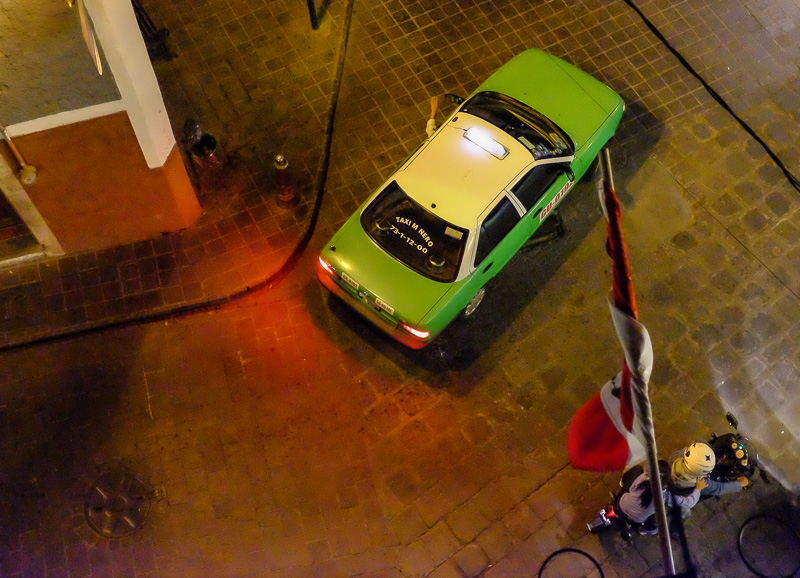
Page 68: “You might say mappyworld is Goob with a capital G,” says Pinchley, holding up two fingers. “And your ballyworld is goob with a little g. Ever the twain shall wheenk. Get it? Got it!” The guy is trashed.
Lei Hao: I don’t know what ‘Ever the twain shall wheenk’ means.
Rudy: I’m playing with words a lot of time, working with sounds and with suggestive resonances. There’s a standard phrase “never the twain shall meet” which you say to mean that never will a certain two things (twain means two) come together. Wheenk is, as I mentioned a pet word of mine. Ever the twain shall wheenk would mean “it will always be that these seemly different two things will join their voices in a joyous loud happy-pig sound like wheenk.”
{{=========8: Night Market
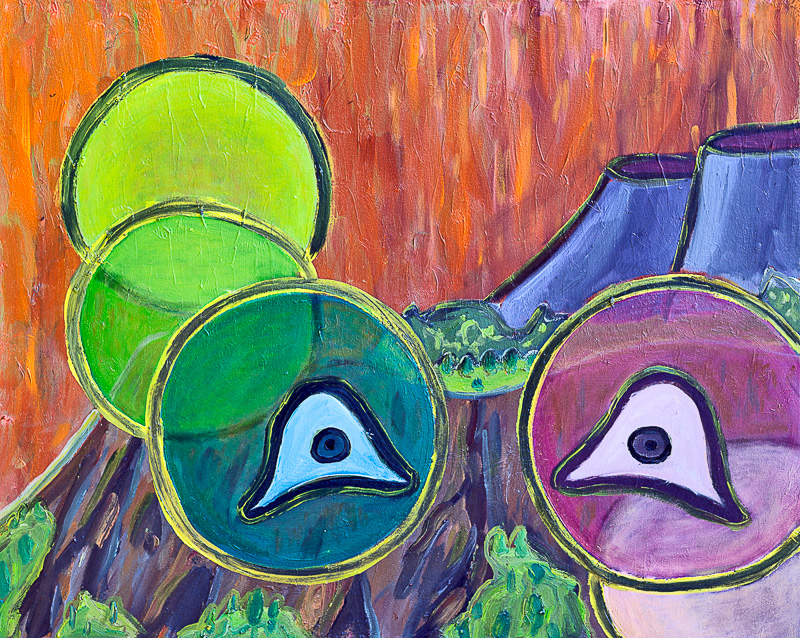
Page 78: “Oh yes they have,” says Yampa. “Folks like your father, and maid Maisie. They have fab gab with the good saucers.”
Lei Hao: I wonder if ‘fab gab’ means good relationship here.
Rudy: That’s close. Fab is old hippie slang for good or fabulous. Gab is 40s slang for talk.
Page 82: “Call me Meatball,” says the cubist blob. Her voice is oiled gravel, with a British accent. “Fit name for a tough cookie. And yes, I’m a Freeth. An elder race, rather down on our luck. I enjoy rollicking, rough-cut laughs. I’d love to be your roadie gal pal.”
Lei Hao: I wonder if ‘tough cookie’ is to describe someone is very strong, powerful and determined. And does ‘rather down on our luck’ means ‘we are not very lucky’?
Rudy: We call a woman a tough cookie if she is, as you suspect, strong and determined, and a cookie in the sense of being a female. the phrase is popular I suppose because usually a cookie is not tough.
And, yes that’s the right translation of rather down on our luck. rather is use in a British sense of somewhat. having a somewhat bad run of luck.
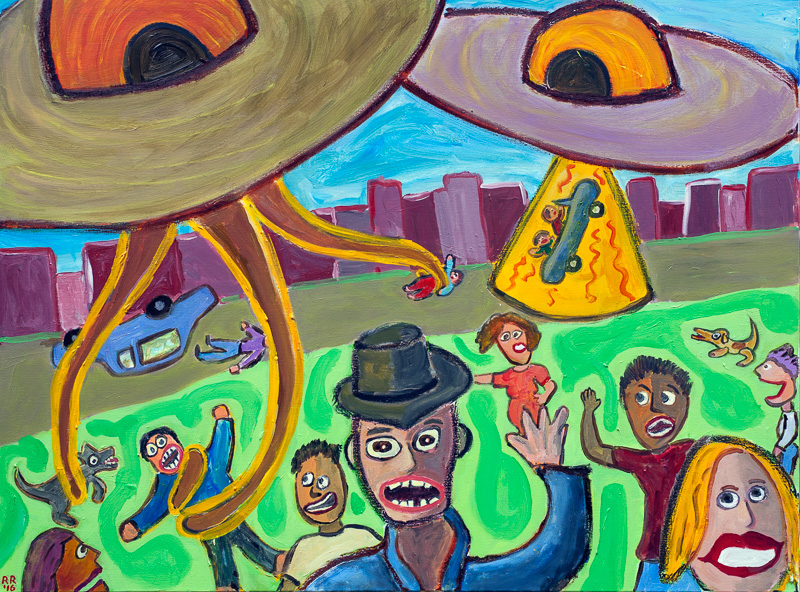
Page 90: Whatevski. The saucer pearl’s gate swells to the size of a plum, ready for action, hovering at waist level. And it’s turned transparent—meaning the gate is open. Zoe walks towards it, blatting her horn. The closer she gets, the bigger the gate seems.
Lei Hao: I wonder if ‘whatevski’ means ‘whatever’.
Rudy: Right. People say “whatever” to mean “I don’t care” or “think whatever you want to think although it’s bullshit but I’m not going to argue about it.” And it’s a slang usage to put a Russian ending on a word like evski. So whatevski. It’s whatever in even more dismissive sense.
{{=========9: Saucer Hall
Page 97: “The boon I beg is but one caraway seed,” chirps Filkar. The Flatsie comes to a halt upon the damp spot at Scud’s feet. “In return I’ll plant this teep slug upon you. Having tasted you, the slug is in readiness. You’ll peer into others’ minds, yes. And you’ll learn to craft a cloud of unknowing. No saucer will ken your presence.”
Lei Hao: Should I literally translate ‘a cloud of unknowing’ or you have deeper meaning behind it?
Rudy: There is, I believe, a medieval work on mysticism which is called “the cloud of unknowing” Used in the sense of being enlightened by having an empty mind. But I took this nice phrase and deliberately used it in a different and idiosyncratic way. I’m taking “unknowing” to mean “unknown” as in “invisible.” The cloud of unknowing is then like a cloak of invisibility. And, by the way, “ken” means “know” or “see”.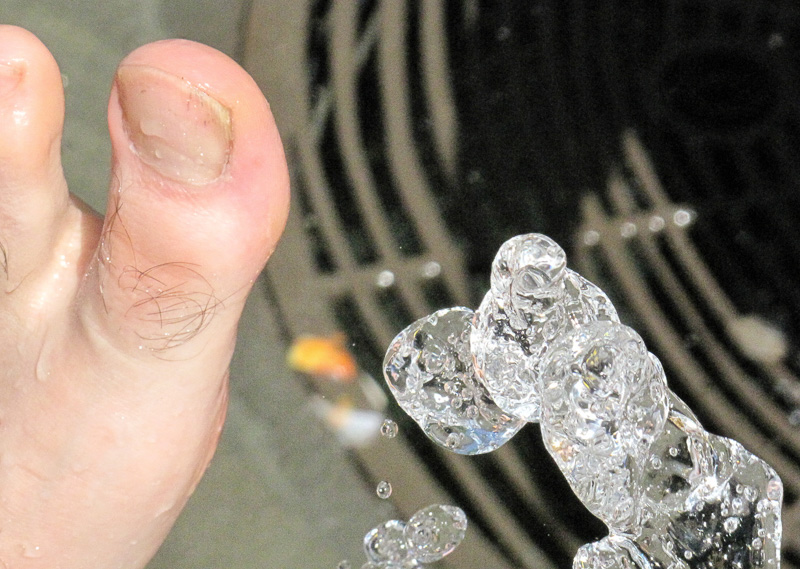
Page 98: “Teep slugs seek ever to please their hosts,” says Filkar. “Think only of what you want.” Filkar utters a command in a burbly, low-pitched tongue. In harmony with Scud’s wishes, the teep slug reshapes itself into an elegant hemisphere, little more than an inch across. Scud sets the thing on his wrist.
Lei Hao: I wonder if ‘burbly’ means burly here, like husky.
Rudy: Burbly has to do with being a liquid. Like the sound of water in a stream.
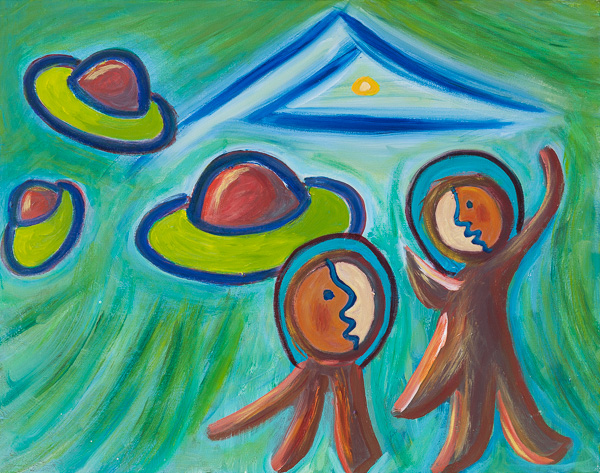
Page 99: Nearby, two dog-sized ants are conversing via scents and by taps of their antennae. Their thoughts have a geometric quality—like colored wooden blocks in a mound.
Lei Hao: Could I literally translate this description or you have deeper meaning behind it?
Rudy: You might think of Lego blocks of odd shapes. No deeper meaning.
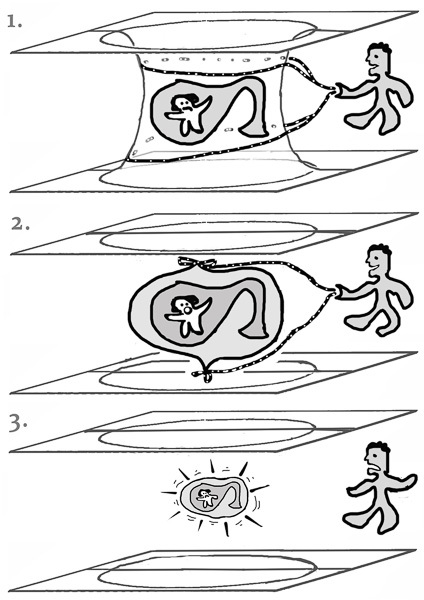
Page 101: “Thou sayest it, my liege. Drawing on the supernal power of your teep slug, you addled your warp and woof—and in this wise you’ve conjured a cloud of unknowing. ’Twill engulf you and your raiment until you relax your hold.”
Lei Hao: I don’t really know what warp and woof means in this context.
Rudy: Warp and woof are from weaving. The threads in one direction are the warp, the threads in the other are the woof. So here it is being used as “the fabric of your being.”
{{=========10: Three Zoes
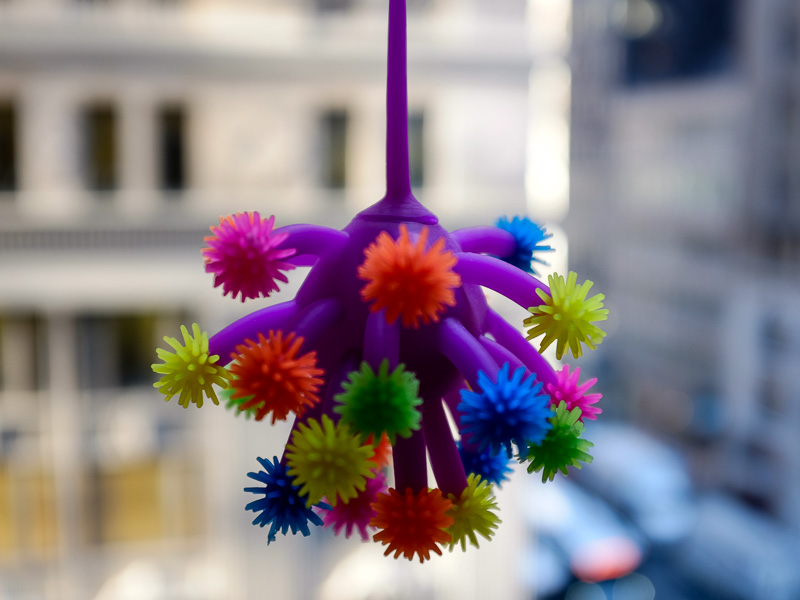
Page 107: She returns to the tunnel and goes back to mappyworld. On the way she gets another glimpse of that Mayan-type Goob-goob, the goddess of mappyworld. This time Goob-goob looks like a vine-covered pyramid as much as she looks like a woman. Seedy, imposing, beyond the mundane—and, for whatever reason, keenly interested in Zoe’s activities.
Lei Hao: I wonder if ‘seedy’ here means containing many seeds or dirty and unpleasant.
Rudy: Seedy is like a homeless person. run down, tattered, not necessarily dirty, but threadbare. Maybe austere or like a hermit. I don’t remember why I used this word here.
{{=========11: Leaving Town
Page 110: “You’re the baddest of them all,” says Zoe. “Don’t worry. If you can stand just a few more minutes, I have this atavistic desire to do a big shopping for our trip.”
Lei Hao: Does the ‘baddest’ here means Zoe thinks Villy is the coolest or the most powerful one?
Rudy: Right, this is a Black English usage. Baddest is the best.
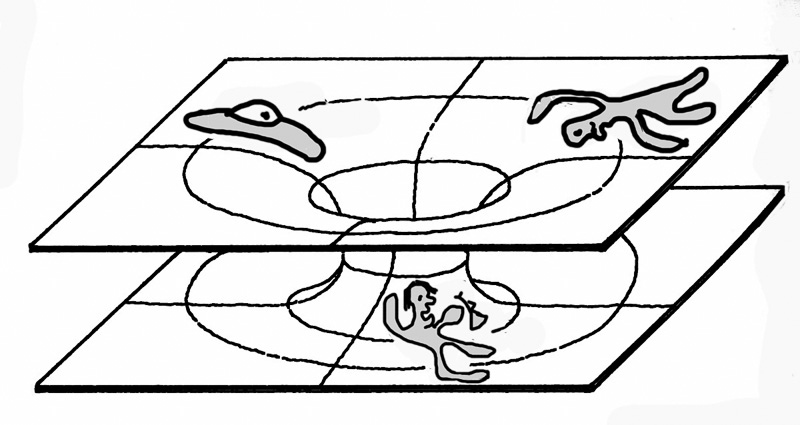
Page 116: Yes, the creepy hand crawled up Scud’s leg and picked his pocket, and now it’s up high on a thumb and two fingers, holding the jar of caraway seeds against its palm with two of the other fingers. To make things worse, Irav’s little whaler snail is riding on the back of the rogue hand. Like Captain Ahab on his ship. The frikkin hand bagged the snail too. Villy charges after it—but there’s no catching the hand. It skitters to Pinchley and Yampa’s top-down convertible and—with a single, startling leap—it springs to safety inside.
Lei Hao: Who is ‘Captain Ahab’. And what do you mean by saying ‘Yampa’s top-down convertible’?
Rudy: Captain Ahab is the hero of the novel Moby Dick, and his is a whaler who wants to harpoon a whale. Yampa’s car is, I beehive, a convertible, that is, a car whose top can be lowered. And the top is down. so the car’s interior is open like a motorboat you can jump into.
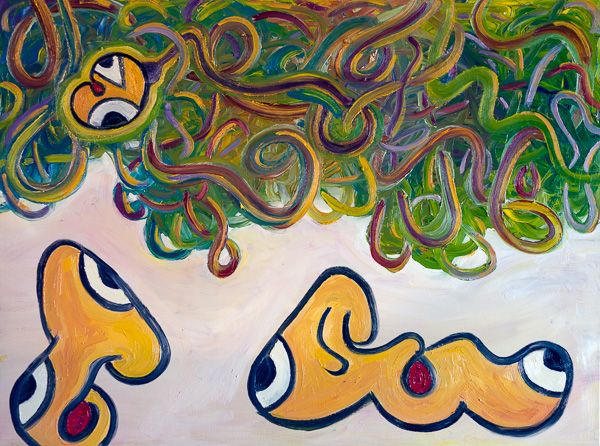
Page 118: “When Pinchley squats, he splits in two,” says Yampa, making a rude sound with her mouth. “If we conjecture kac is conscious.”
Lei Hao: What does ‘kac’ mean?
Rudy: Kac is shit. The word comes from Anthony Burgess, A Clockwork Orange, and is also a Greek root word, as in cacophony.
Page 118: “All hail the followers of the One True Rump,” adds Pinchley. He bows so deeply that he falls onto the ground, but somehow he manages not to spill the precious cocoa. “Mighty Truban titans we,” says Yampa, helping Pinchley to his feet. Obviously these two are loaded from their cocoa party. They lean together, propping each other up like a pair of seedy clowns.
Lei Hao: I wonder if there’s any classical allusion behind ‘One true rump’ and ‘Truban titans’.
Rudy: These guys are stoned, high on the “drug” cocoa, so what they say isn’t very logical. They referred to Pinchley shitting kac, and now he is praising his own ass, in saying “the one true rump.” On the home world of Pinchley and Yampa, there are two tribes or political parties and one is the Trubans.
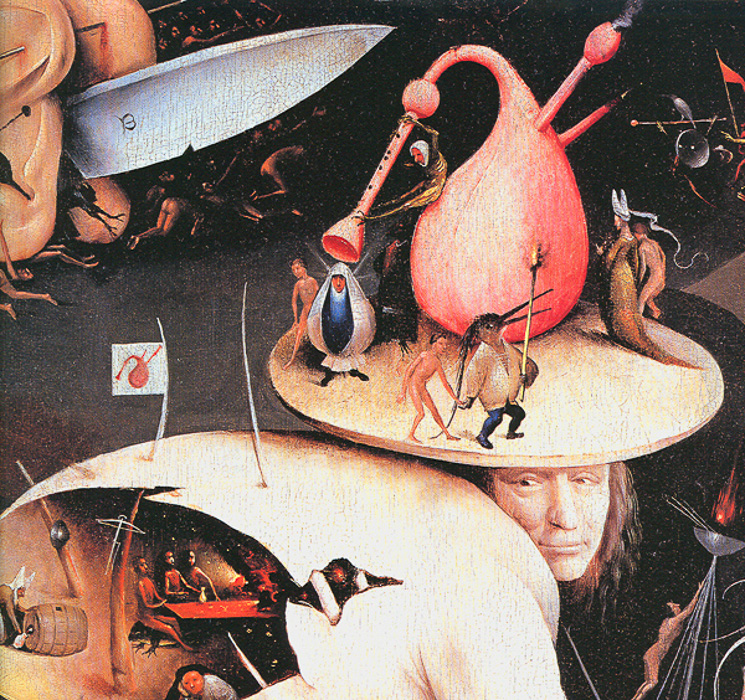
Page 120: “Done told you,” says bleary Pinchley. “No real cars in Van Cott at all. Only thing they driving here is beetles, beetles, beetles. Can’t road-trip no million miles in no beetle. Thing’s gonna pupate, or some shit like that.”
“It’s larvae and caterpillars that pupate,” corrects Scud. “Not full-grown beetles.”
“Our pet professor,” Yampa says to Scud, with a little bow. “Egg, larva, pupa, adult. Lady Filippa’s folk fashion that same flow.”
“What-frikkin-ever,” blusters Pinchley. “So maybe a car-beetle spawns a ribbon of eggs and keels over dead and the eggs hatch out larvae that eat the flesh of the passengers, which would serve you right if you’re stupid enough to road-trip in a beetle.”
Lei Hao: The sentence in bold doesn’t really help me understand the relation between Lady Filippa and what’s mentioned above. Are you trying to say that Lady Filippa belongs to the same kind of creature as beetles do?
Rudy: You need to understand that Yampa’s speech is kind of a word game, very mannered. I often have her alliterate, that is start all the words with one letter. And sometimes to do this the meanings of the words is twisted and forced. Yampa mocks Scud by calling him a pet professor. There is a woman Lady Filippa in Szep City who they want to bring the caraway seeds to. Lady Filippa’s race (folk) are organisms that undergo metamorphosis. When they see her, she will be a pupa. Now the car is a beetle, but it’s not the same kind of organism as Lady Filippa.

Page 125: Villy enjoys the sound of her voice. “You’re so alert,” he says. “Dialed up high.”
“I’m glad I stuck with you,” says Zoe. “When Meatball knocked you out, I panicked and hopped back to Los Perros.”
Lei Hao: What doest ‘dialed up high’ mean?
Rudy: Dialed up high is like turning a radio volume knob up to the LOUD setting.
{{=========13: Borderslam Inn
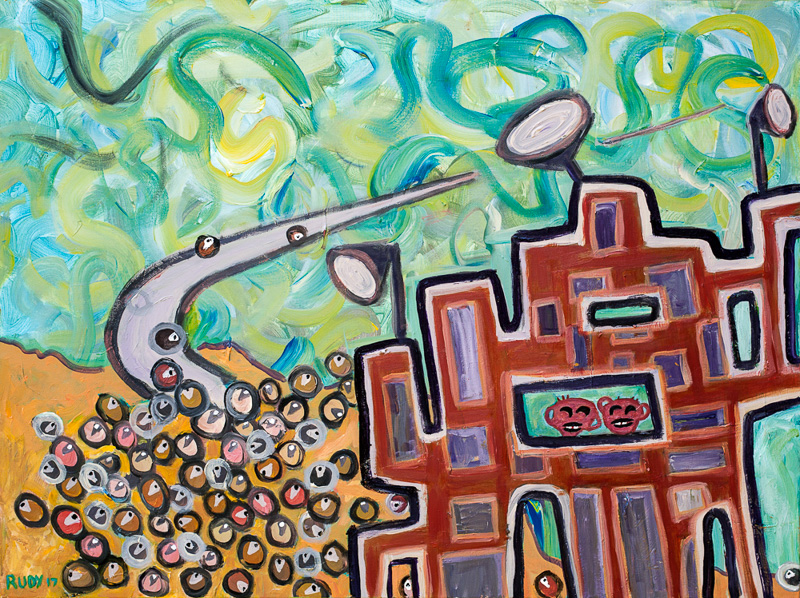
Page 143: “We only eat mini Thudds after they’re dead,” says Hungerford, chuckling. “Wouldn’t be humane otherwise. What with them having some rudimentary intelligence. Fortunately, a lot of them mini Thudds die on their way down from Borderslam Pass.”
Lei Hao: Are you saying that those mini Thudds do have some intelligence?
Rudy: Yes, this is a Southern English usage “what with them having” just means “because they have”.
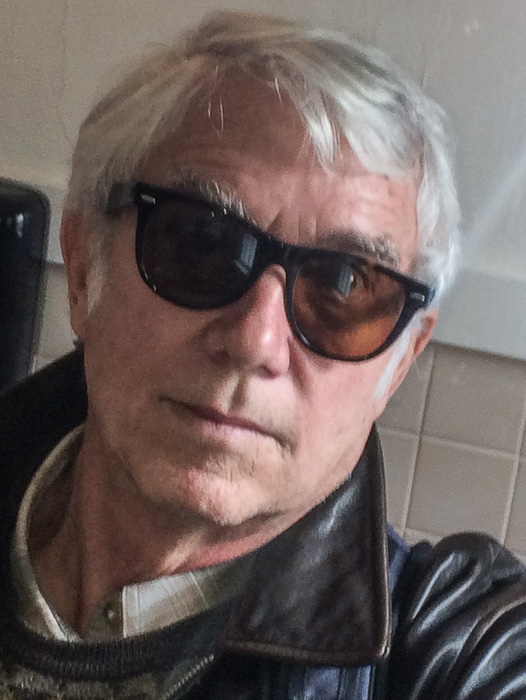
Page 150: “Screw this,” says Villy and cranks the engine speed to a chattering scream. The spinning tires throw up a monster rooster tail. The whale rises up and hydroplanes the remaining half mile to the far shore. And then they start the climb.
Lei Hao: I don’t quite get the point of the ‘monster’ rooster tail thrown by the tires. Does it mean that the spinning tires stirred up a great amount of dust?
Rudy: The spray of water that a motorboat throws up behind itself is called a rooster tail. And her ‘monster’ means big.
{{=========16: Thuddland
Page 173: “Just about,” says Pinchley. “The way I’ve doctored up this car, she practically drives herself. But keep in mind the diorama has teeth. Be glad I finally fixed that driver side window so it’s easy to close.”
Lei Hao: I wonder if “the diorama has teeth” here means it’s still dangerous to drive with the upgraded car.
Rudy: A diorama is a museum-type display of stuffed animals against a painted backdrop. But this prehistoric scene isn’t a safe display, it’s alive and things in it can bite you.
Page 180: “There there,” says Zoe, teasing Villy and babying him at the same time. “Put your wittle head on my shoulder and get some more sleepy-bye.”
Lei Hao: I wonder if ‘wittle’ here means ‘little’.
Rudy: She’s doing baby talk: wittle for little and sleepy-bye for sleep.
Page 182: “I’m on it,” says Pinchley, all smooth and urbane. “Don’t need to slow down one tit or jottle, son. I’ve got me a deluxe model glassblaster beetle. Better than the healer tongue I used for the cracks after your brother rolled the car.”
Lei Hao: I’m not sure what “glassblaster” means. Is like describing something that’s high-class and powerful?
Rudy: It’s another of Pinchley’s seemingly endless supply of “tool creatures”. It fixes glass, like the windshield, and it spits out the glass fast, blasting it forcefully.
Page 183: Scud bombs on. He uses his teep to sense the myriad of minds in the jungle and, equally important, he senses the relatively empty zone wherein lies the road ahead.
Lei Hao: Does “bombs on” here means Scud keeps doing very well?
Rudy: To “bomb along” in a car means to drive fast.
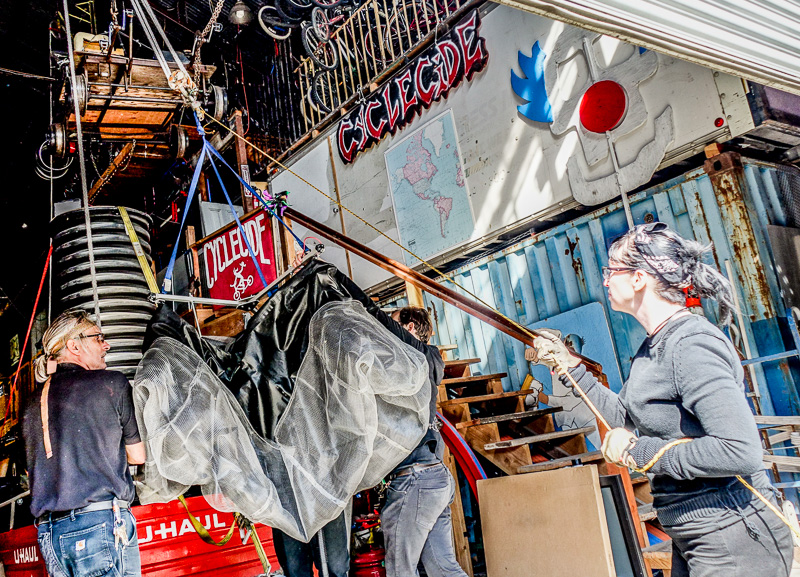
Page 186: A nearby sky vine dangles from its mile-high hovering float, not far from skeenky Poppo, who is drifting away like a cloud.
Lei Hao: Does “skeenky” here means stinky?
Rudy: Skeenky is another of those made-up insult words of not quite certain meaning. Skeenky, skeevy, scuzzy, skanky, scurvy. Not necessarily stinky. Just strange and unpleasant.
Page 190: “Skorkers!” cries Pinchley, losing his cool and dropping into the Szep tongue himself. “Drive, Scud! And Meatball, get ready to zap those sneevers where it hurts!”
Lei Hao: I’m aware that skorkers belongs to the Szep tongue. Does it mean ‘stop saying that’ or ‘bastard’?
Rudy: A skorker is like a bastard.
{{=========17: Surf World
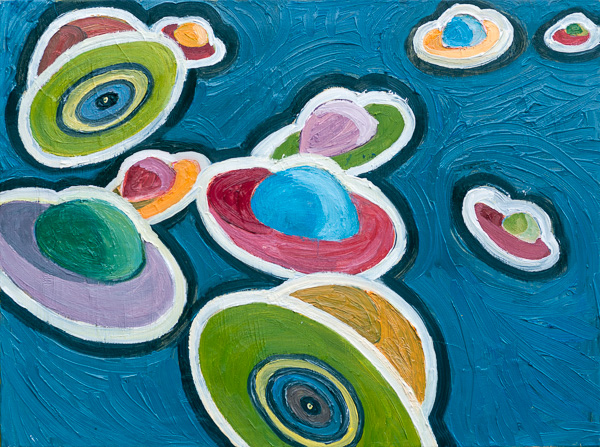
Page 218: “That wave is gonna to have a tube on its front side,” says Villy. “Up at the top, where it curves over. We’ll shoot that tube, right, Yampa? Mucho smeel in there. The one true light.”
Lei Hao: I’m not quite sure what the one true light stands for.
Rudy: He’s a surfer excited about the tube at the top of a wave. He supposes it has a lot (mucho) of consciousness-vibe (smeel) and that you can contact the pantheistic/mystic/stoner deity known as the One, or the White Light, or the Absolute.
{{=========18: Beach Party
Page 226: “Beat it, Meatball,” interrupts Pinchley. “Told you already. Amscray. Last thing we frikkin need is a leech-saucer spy in our car. I got a feelin’ you’re gonna call down another hit on us.”
Lei Hao: I’m not sure what “Amscray” is.
Rudy: This is 1930s slang, known as pig Latin. You put the start of the word in back and add ay. Scram means go away, so pig Latin for it is Amscray. People used to say that!
{{=========19: Riding the Ridge
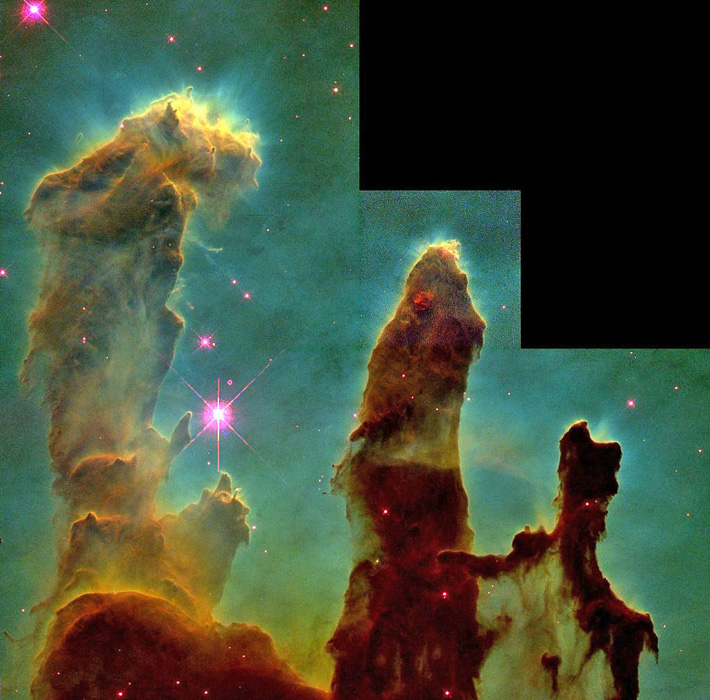
Page 262: “Wery many fossils here in our canyons,” says Gunnar, cutting off Scud. “Pinchopods, dungosaurs, blahceratops, squatoons, and bone-bones. No vanting more. You know vell vhat we vant.”
Lei Hao: I’m not sure what “blahceratops” and “squatoons” are. What kind of fossils are they?
Rudy: This is complicated. It’s like a way of making fun of science education. These are all silly made-up names for types of fossils. Or maybe they’re used by Gunnar because he doesn’t know proper English. Pinchopods might have claws. Dungosaurs leave fossil turds. A blahceratops is kind of boring or “blah.” A squatoon, well, squat is a kind of rough word meaning “shit” or “not much” (“You don’t do squat for me.”), so a squatoon would again be a kind of boring dinosaur.
Page 264: “Don’t you guys be beatin’ up dust and making a hoo-roar,” says Pinchley. “This here ant’s a-ponderin her specific moves.”
“Aw—”
Lei Hao: Does “beatin’ up dust” here means excitedly praising or shouting out loud?
Rudy: Beating up dust would mean making excitement (roar or hooray or hoo-roar). I used to use this expression when our three kids would be too active in the house. “Don’t beat up dust!” Like stirring up dust and making me sneeze.
{{=========20: Not Mom
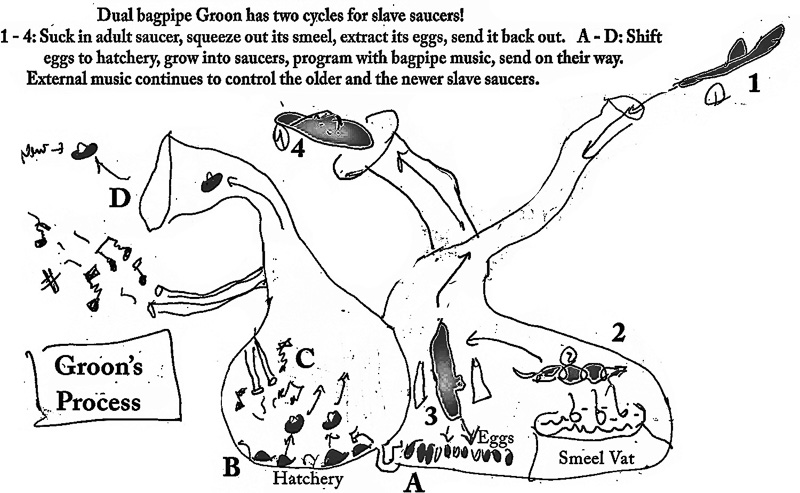
Page 276: “My name is not Crusty Crab,” he says with a creaking hiss. “It’s Klactoveedsedstene. Give me that saucer pearl.”
Lei Hao: I wonder if I can transliterate the name Klactoveedsedstene?
Rudy: This is a word make up by the famous bebop saxophone player Charlie Parker. He called one of his songs, “Klactoveedsedstene” and when someone asked him what it meant, he said, “It’s just a sound, man.”
{{=========21: Harmony
Page 305: “Stratocasting,” says Zoe.
“Stratocaster is a model of Fender guitar,” says Villy, talking slow like Zoe’s out to lunch. “As it happens, my brah Znork in our surf trio plays a Fender Telecaster. Me, I have a cheap-ass git-box from N-Mart.”
Lei Hao: I’m aware that Stratocaster is a classic model of Fender but it becomes a kind of sound or performance given by Zoe and Villy to make their car go faster. I wonder if I could translate the word using a Chinese phrase that describes the sound of a Stratocaster.
Rudy: Going for the sound seems like a good idea.
Page 307: The guitar necks glow and flex as they dangle from the vine. Their bodies gleam with dark and kandy-kolor paint. They pinch free of the vines and settle onto the unfolded red Harmon. The vines and the moiré mesh are gone.
Lei Hao: I’m not sure what kandy-kolor means.
Rudy: Customized “hot-rod” automobiles in Southern California in the 1950s. They used a special sparkling iridescent paint with the trademark Kandy Kolor.
Page 309: “No!” yells Scud. “Don’t show us your grahb!” By way of changing the subject, Scud quickly tells the others, “Pinchley says it’s his turn to drive. Even if he doesn’t’t have his car.”
“Pinchley will drive us home to Szep City,” says Pinchley. “For Yampa’s woeful wake.”
Lei Hao: Does “wake” here means an occasion before or after a funeral when people gather to remember the dead person, traditionally held the night before the funeral to watch over the body before it is buried?
Rudy: Yes, exactly.
{{=========22: Stratocast
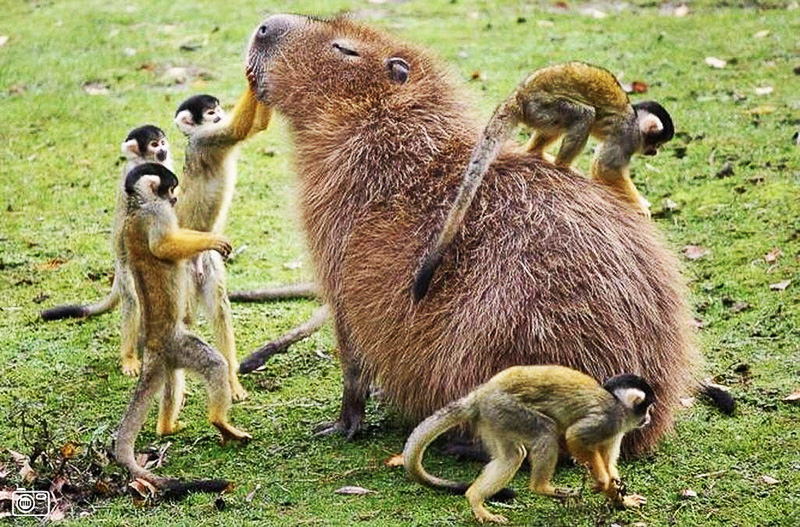
Page 313: “I see the colored things too,” says Zoe. “Smeel boomerangs. We’ll chase them with our notes. Stratocast a goblin march.”
Lei Hao: Does this “goblin march” means they’ll move forward like a goblin?
Rudy: Well, it’s just a sound like you might image in a cartoon of marching goblins. I think the phrase is inspired by a passage where someone is listening to a concert in E. M. Forster’s novel “Howards End.”
{{=========26: Flat Cow
Page 383: “The near end of the cow tail acts like a zipper-pull on the edge of a change purse you might get as a souvenir of a visit to, say, El Zigurat Fabuloso de la Goob-goob.”
Lei Hao: I’m not sure what “El Zigurat Fabuloso de la” means.
Rudy: In Mexico three are stair-stepped Aztec or Inca pyramids, or ziggurats, spelled zigurat in Spanish. Fabuloso is Spanish for Wonderful. And Goob-goob is a fabulous steppe pyramid.
{{=========29: Cosmic Beatdown, Part 1
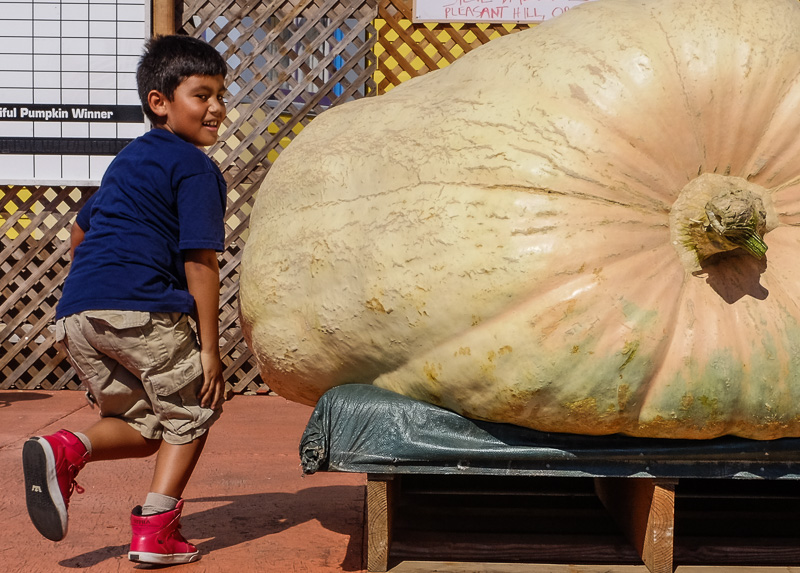
Page 444: At least a dozen people were on that strip of lawn up there. Prosaic, stoic Principal Clark, Ms. Boot the enforcer, Chau En Lai the valedictorian, handsome Coach Simmons, Amparo Quinonez from the Los Perros city council, and Zoltan Nemeth the photographer—all of them murdered by the giant saucer.
Lei Hao: Does this happen to indicate the name of the previous Chinese Premier, Chou En-Lai?
Rudy: I was just lookin for an Asian name, and maybe I took Chou En-Lai from the newspaper. We have a lot of Chinese students at Los Gatos. You can decide what to use…maybe it would be confusing and distracting to use the Premier’s name. Maybe use your name! That would be funny for you and me to know this.
{{=========30: Cosmic Beatdown, Part 2
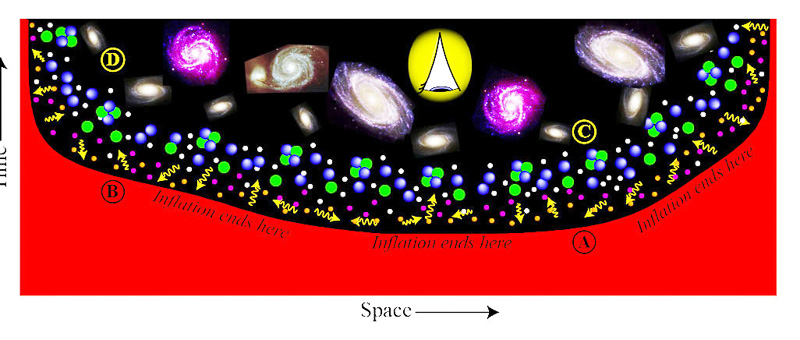
Page 450: Reality is a sea of sensations, feelings, and tales, intricately linked, with everything alluding to everything else. And the stodgy, solid, kick-a-brick, normative world—that part is the illusion. That part is the dream. Either way, it’s the same gnarly thing underneath. Feet on a welcome mat. A tangle of talk. Yeah. Villy feels high as a kite.
Does “ kick-a-brick” here means fucked-up here? Also I’m not quite sure what “ Feet on a welcome mat” means.
Rudy: The British philosopher known as Bishop Berkeley advocated the idealist or immaterialist doctrine which holds that everything in the world is a mind or an idea rather than a physical object. And the writer Samuel Johnson, speaking with a friend, kicked a brick and said “I refute him thus!” Jorge Luis Borges writes about this in an essay.
So what is real after all? Thoughts or objects? In the end both are the same. “Feet on a welcome mat.” I’m not precisely sure what I mean by this phrase…it’s sort of a Zen remark. Something very immediate that you see, looking down, your feet on a welcome mat and maybe the “mat” is the world letting you in, welcoming your feet.
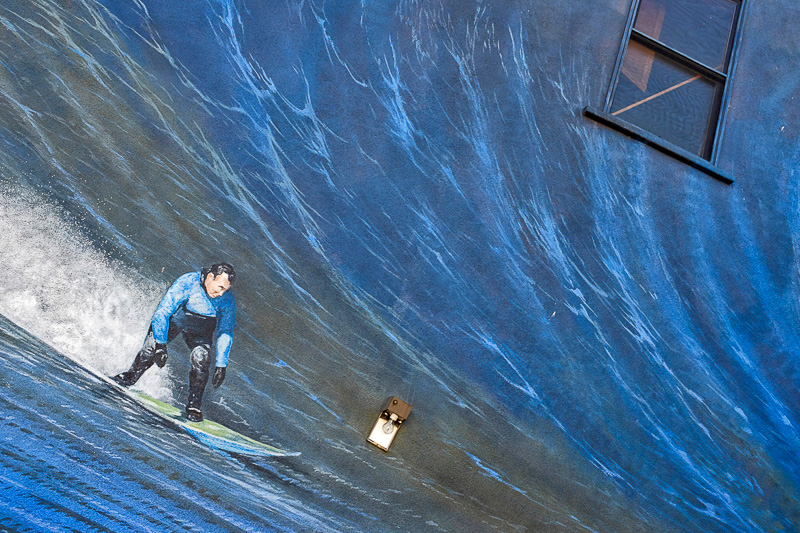
Lei Hao: You say that “feet on a welcome mat” means that when you stand at the door, your feet stand on the blanket that welcomes you. Perhaps the blanket you can see only brings you to the world you can enter. I like the poetic comments you put here. I feel you are revealing here a critical philosophical question: the relationship between the physical world and mind.
Objective material conditions shape the way in which we can image the world, and the knowledge and imagination that we hold about the world can also influence how we can change the material world around us.
This question has its very practical significance in China today, especially when AI, big data, etc. those digital technologies are playing an increasingly important role in shaping Chinese society today. What algorithm we are able to produce has an enormous ramification of what kind of future we envision. In this particular historical conjunction, your work brings a timely alert, inspiring Chinese readers to think beyond. It is also because of this reason I am very keen to introduce your work to Chinese readers.
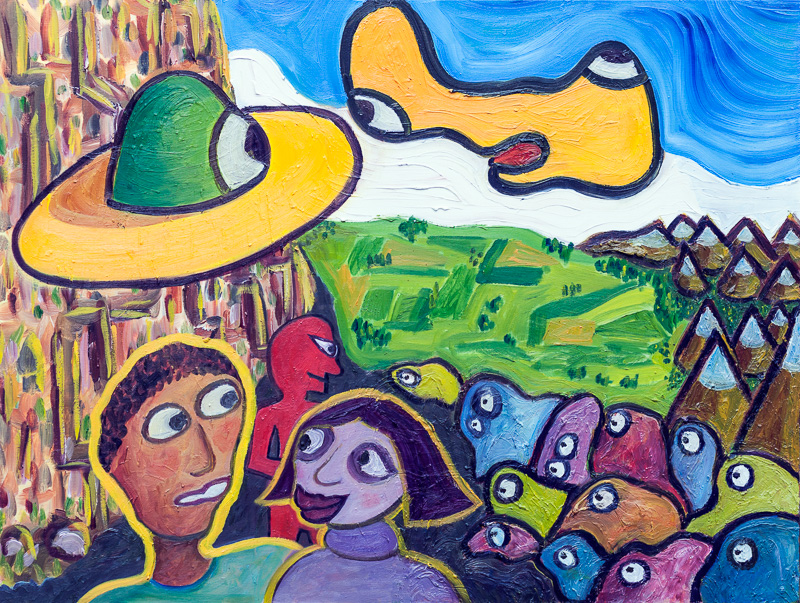
Page 456: And then she switches to showing the tunnel as a cubist comic strip, featuring a cute high school teacher lady who’s making love to conic sections.
Lei Hao: I wonder “making love to” here means she likes conic sections very much.
Rudy: Well, I think it means she’s somehow having sex with the conic sections, or at least going on dates with them. Makes no sense…but it’s cubist!
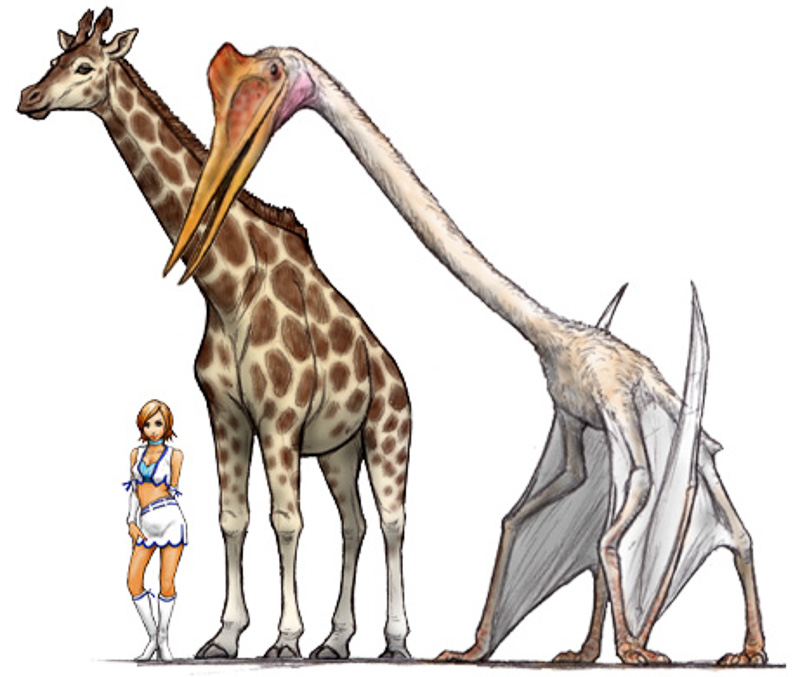
Page 458: “Can you tell that I’m having gaps?” asks Villy.
“You’re like a stone skipping across a poooond,” moos the flat cow.
Lei Hao: I wonder if the “gap” here means Villy thought he is not seen moving as a whole and continuously; instead, his appearance has been split by gaps due to the jump-cuts he experiences in the unspace.
Rudy: These aren’t spatial gaps in his body, these are temporal gaps is his time line. Like a film in which certain sequences of frames are missing. Jump cut is a phrase for this in editing film. People who are high on drugs might have the experience at times. A stuttering of the visible world. Hop, hop, hop.
And one again, if you want to get your hands on this amazing novel, here’s a universal ebook buy link for it. Print editions: Amazon, and Barnes & Noble.
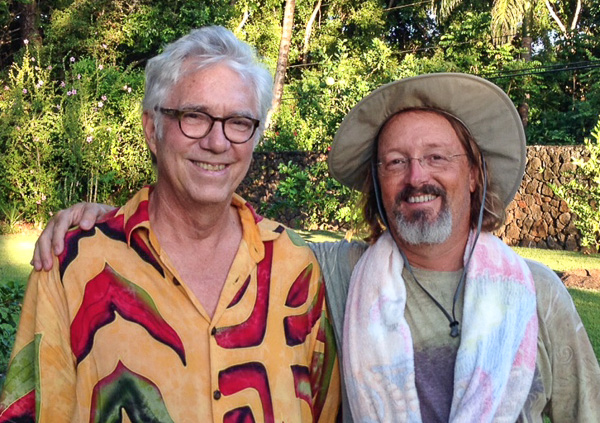
Oh, and thanks again to Marc Laidlaw for writing the novel’s intro!









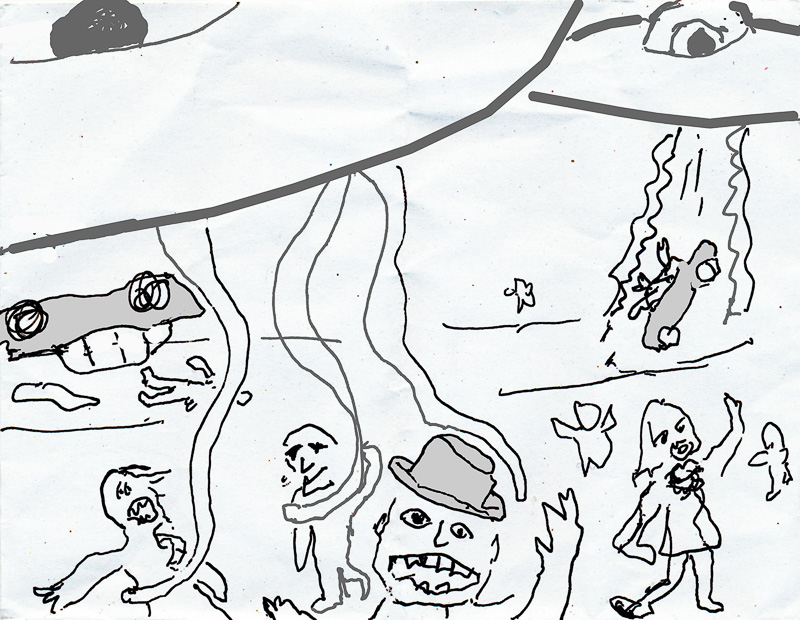
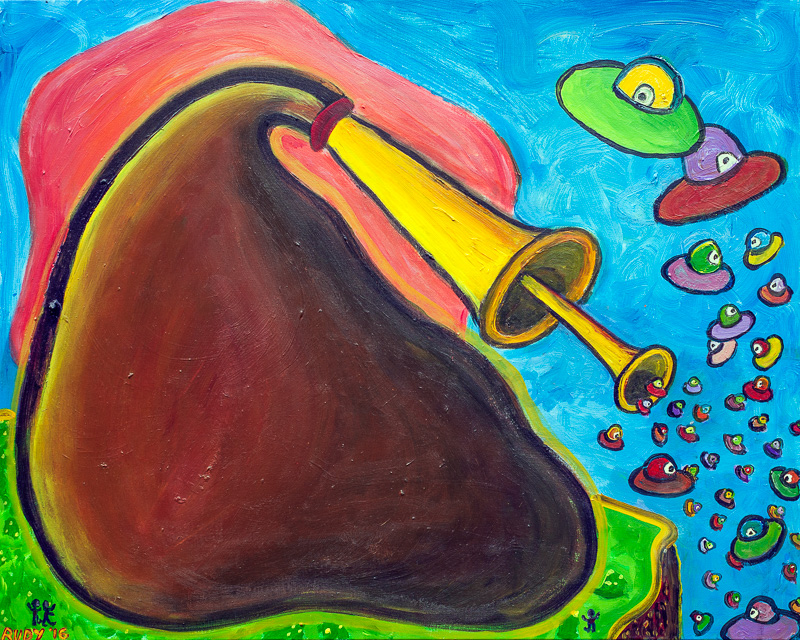
April 15th, 2020 at 7:41 pm
Not trying to hijack your site or whatever but am curious if you ever crossed paths with John Conway. You’ve probably noticed that COVID-19 took him down recently.
His game-of-life was one of those things that open doors to new worlds. I see your work as doing that also. He did plenty of other very significant work as well. And so did you. If you have any comments, would love to hear them.
Thanks for all you do!
Best!!!